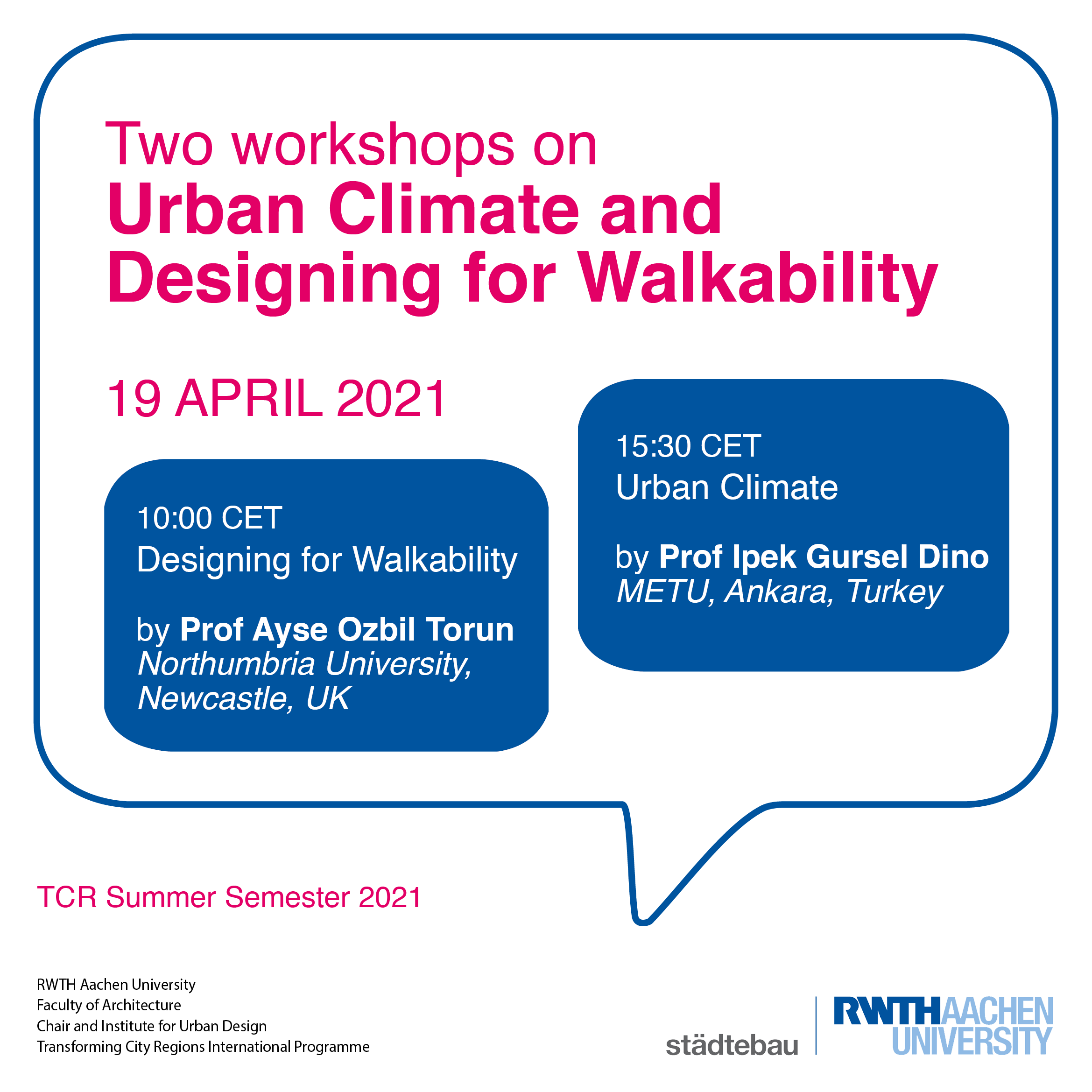Two workshops on Urban Climate and Designing for Walkability
TCR News April 19th
TCR Summer Semester 2021 ‚Aachen Social Resilience‘ studio have participated in two workshops on urban climate and designing for walkability. The workshops were given by Prof. Ayse Ozbil Torun (Northumbria University, Newcastle, UK) and Prof. Ipek Gursel Dino (METU, Ankara, Turkey).
(1) Designing for walkability by Prof Ayse Ozbil Torun (Northumbria University, Newcastle, UK)
19 April, 10:00 CET
The workshop aims to introduce the required macro- and micro-level built environment design aspects in designing for walkability. The first part of this workshop will lay the ground for necessary concepts/criteria and tools in creating pedestrian-friendly neighbourhoods through a wide range of examples and applications. The second part of the workshop will establish the necessary skills and knowledge on walkability analysis of selected study areas (neighbourhoods) through the application of space syntax techniques. This hands-on workshop will help students acquire basic knowledge and skills on:
– Connectivity analysis of existing street network
– Visibility analysis at the neighbourhood level
– Merging different data sets at the street segment level
– Evaluating alternative street-level interventions
During the hands-on workshop, the students will have the opportunity to apply the gained skills and knowledge on a) the evaluation of the existing neighbourhoods in terms of their walkability levels, and b) the partial evaluation of their proposals at the street-level. The discussions and critiques will enable students with the necessary applied skills and knowledge to interpret the current and prospective design of their case study areas in terms of walkability.
(2) Urban Climate by Prof Ipek Gursel Dino (METU, Ankara, Turkey)
19 April, 15:30 CET
The workshop aims to establish the necessary skills and knowledge on environmental analysis of open public spaces by means of computational methods and tools. The students will receive the basic foundation of quantitative, model-based analysis of outdoor spaces through a lecture, with which the concepts, parameters and objectives of analysis are introduced. Applied tutorials will be given by the instructors that introduce the:
– Analysis and visualization of the current and future weather data
– Sun path studies
– Solar radiation studies
– Sunlight hours studies
– Outdoor comfort studies
After the tutorials, the students are expected to apply the gained skills and knowledge on the design problem assigned during the studio. Focused critiques will be provided to the sutdents based on individual design work and the application of the analysis methods to inform and guide design development. Specific focus will be given to conditions of climate change and global warming, and the negative impact of climate change on the built environment and outdoor spaces.
